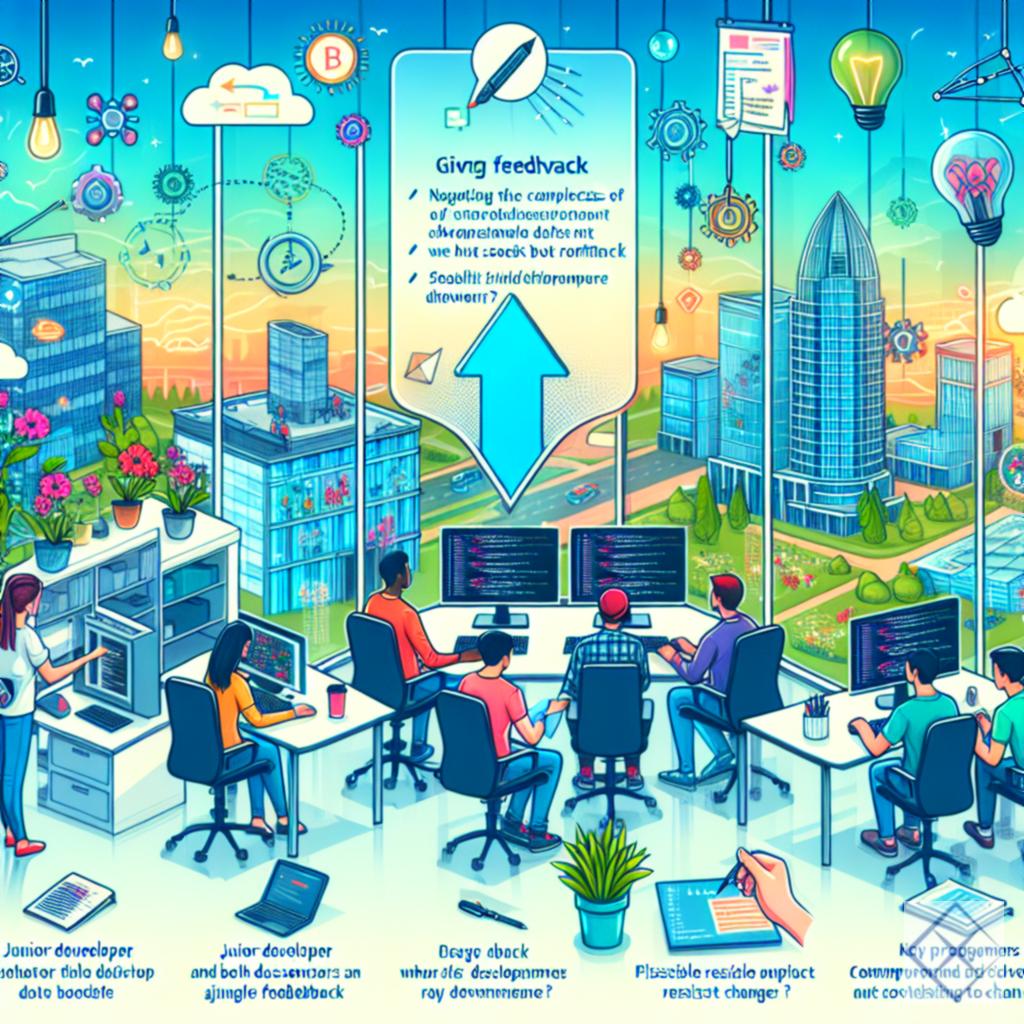How to deal with devs that ask for your feedback but don't want to listen to you suggestions anyway

How to Deal with Junior Developers Who Seek Feedback but Resist Change
Navigating the complexities of software development can be challenging, especially when you’re working with junior developers who frequently seek your feedback but seem to dismiss it in favor of their own ideas. This situation, while frustrating, is not uncommon and can be approached with a blend of empathy, strategy, and a focus on long-term growth.
Understanding the Dynamics
The relationship between senior and junior developers is often built on mentorship and collaboration. When a junior developer approaches you for feedback, it signifies their willingness to learn. However, when they consistently ignore constructive criticism, it can lead to feelings of frustration and confusion.
It’s essential to recognize that the junior developer might not fully understand the implications of their decisions. They may lack the experience to see how their choices could affect the broader system architecture or code maintainability. This mismatch in perception can create tension, especially when you feel the stakes are high.
The Importance of Communication
Effective communication is key to bridging this gap. Instead of framing your feedback as a directive, consider adopting a more inquisitive approach. When the junior developer states their preferences—whether aesthetic or functional—ask them to elaborate on their reasoning. Questions like, “What about that approach do you find appealing?” or “Can you explain why this method works better for you?” can prompt deeper reflection and ownership of their decisions.
By encouraging them to articulate their thought process, you create an opportunity for teaching moments. This can lead to a richer dialogue where you can share your experiences and insights, helping them to understand the “why” behind best practices in coding.
Setting Boundaries
While it’s important to foster an environment of learning and exploration, there comes a point where you must set firm boundaries regarding code quality. If you see a pattern emerging where a junior developer consistently disregards your feedback and insists on their approach, it may be time to assert your position more strongly.
In situations where a junior developer’s choices are likely to lead to significant technical debt or code that is difficult to maintain, it’s appropriate to request changes in their pull requests (PRs) rather than merely suggesting alternatives. This approach sends a clear message that the integrity of the codebase takes precedence over personal preference.
Embracing Mistakes as Learning Opportunities
Another important aspect to consider is the value of allowing junior developers to make mistakes—within reason. When they take ownership of their work, they are more likely to learn and grow from their experiences. Set the stage for a safe environment where mistakes can be discussed openly, and encourage them to reflect on what went wrong and why.
However, this should be balanced with the responsibility of ensuring that their mistakes do not impact the overall project or team negatively. If a junior developer’s approach leads to bugs or system instability, it is crucial to intervene and guide them back on track.
Fostering Growth Through Stories
Sharing your experiences can play a pivotal role in a junior developer’s understanding of best practices. Instead of simply stating that a particular approach is “objectively better,” recount stories from your own career where ignoring certain principles led to problems down the line. This narrative technique helps contextualize your feedback and makes the learning process more relatable.
For instance, when discussing the importance of decoupling classes to enhance maintainability, sharing a story about a project where tightly coupled code led to significant refactoring challenges can drive the point home effectively.
Conclusion
Dealing with junior developers who seek your feedback but resist your suggestions can be a complex challenge. By focusing on open communication, setting clear boundaries, allowing for mistakes, and sharing your experiences, you can create a more productive and supportive environment.
Ultimately, the goal is to cultivate a culture of learning, where junior developers feel empowered to explore their ideas while also understanding the importance of collaborative growth and adherence to best practices in software development. This balance between mentorship and accountability is essential for both their success and the overall health of the codebase.
"Unlock your mentoring potential—schedule a 1-on-1 coaching session today!“
Related Posts
- Communicating better and dealing with co worker who tries to outshine you
- Why TF did my company switch to TypeScript for backend work from C#
- What is it called when someone takes readable code and optimizes it, which makes it less readable How do I get this to s…
- It feels like more and more we’re heading into a future with less software developers: whats your plan
- Safe vs ALL-IN Engineering Management